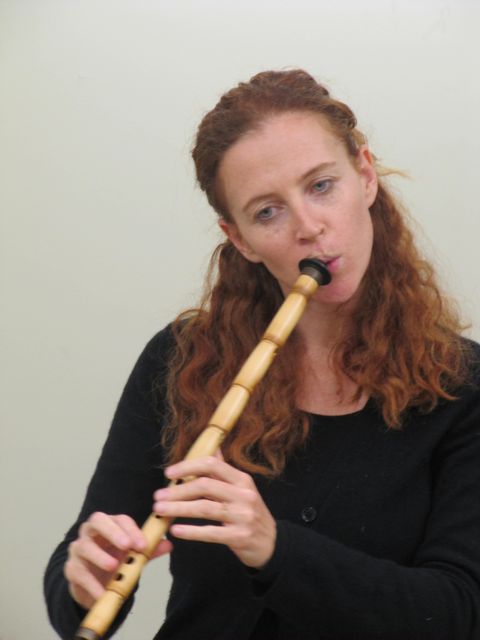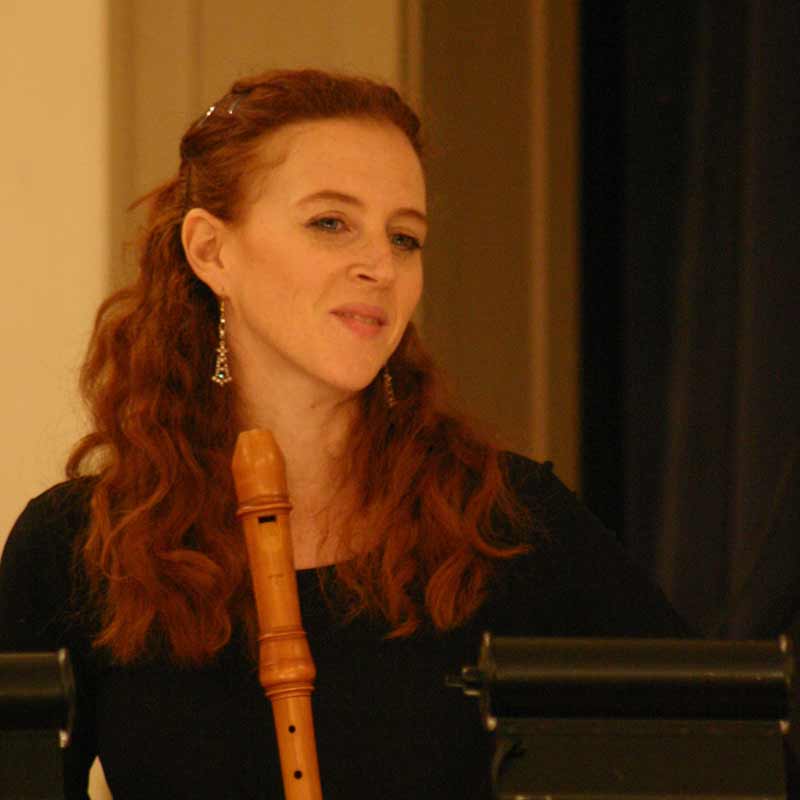by Daniel Hathaway

All of those will be put to use in “O Jerusalem,” a musical and poetical tour of the Jewish, Christian, Arab, and Armenian quarters of that ancient city, to be led by Jeannette Sorrell.
Mor will join soprano Amanda Powell, tenors Sorab Wadia and Jacob Perry, baritone Jeffrey Strauss, oud and qanun player Zafer Tawil and Brian Kay, plucked instruments, in four area performances beginning in Avon Lake on March 5, followed by Fairlawn (March 9), Cleveland Heights (March 10 — note venue change!), and the Cleveland Museum of Art (March 11). Some concerts will include projections.
Daphna Mor counts herself among the legions of children who were introduced to the recorder as students in elementary school — in her case, in the third grade in her hometown near Tel Aviv. “It was considered a pre-instrument,” she said, the plan being that students who showed talent would move on to choose an orchestral instrument later. But Mor was strongly attracted to the instrument and its early music repertoire. “I was fortunate that a very good Dutch recorder player fell in love with an Israeli woman and decided to emigrate to Israel.”
Having the opportunity to study with a musician from the Netherlands, one of the few national cultures that takes the recorder seriously as an instrument in its own right, Mor was inspired to attend workshops in The Hague, eventually deciding to further her studies in Boston where she could continue to explore early music while pursuing another interest: early childhood education. She eventually settled in New York and joined an avant-garde ensemble that played Armenian and North African music.

The Jerusalem program premiered in November of 2018. The same cast will be involved in its revival this month, with the addition of oud and qanun player Zafer Tawil. “We’re going from one crème de la crème ensemble to another,” Mor said, “but a slight change in personnel will bring a different flavor to the program.
“This repertoire basically depends on the musicality and inventiveness of the performers because there is so much improvisation. Every day and every moment is different, which is what makes our rehearsals so exciting.”
Mor noted that when a musician improvises in Baroque music, they’re expected to know the style of the repertoire — how early Italian music is different from later Italian music, or from the French style. It’s the same for ethnic music. “You’re steeped in the knowledge, but when you improvise, you add your own voice.”
But back to Daphna Mor’s packing list. What exactly will she be bringing along to Cleveland? “Four or five different sizes of recorders in Renaissance and transitional styles, with bores that are straight and more open at the bottom so the sound is stronger. Also more modern recorders for Arabic music because of its range.
“And neys, which are ancient flutes, literally a reed with finger holes. The embouchure is angled so that part of your breath goes into the flute and part of it stays outside. It takes a very long time to master that — many people give up, but I’m happy I didn’t!” she said. “The ney is the main instrument in Turkish Sufi music. It comes in different sizes, one for every musical scale, and can play quarter-tones that are very much a part of Middle Eastern music.”
One item Daphna Mor won’t have to pack is her voice — she’ll be singing as well as playing in the ‘O Jerusalem!’ program. “I’m excited to be singing a Jewish prayer. When I do it, my heart swells. It’s usually sung as a solo in the congregation, but it’s beautiful to hear the chorus echoing my voice in the Apollo’s Fire version.” (Watch a video of Mor singing Sephardic songs at The Greene Space.)
Published on ClevelandClassical.com March 3, 2020.
Click here for a printable copy of this article



